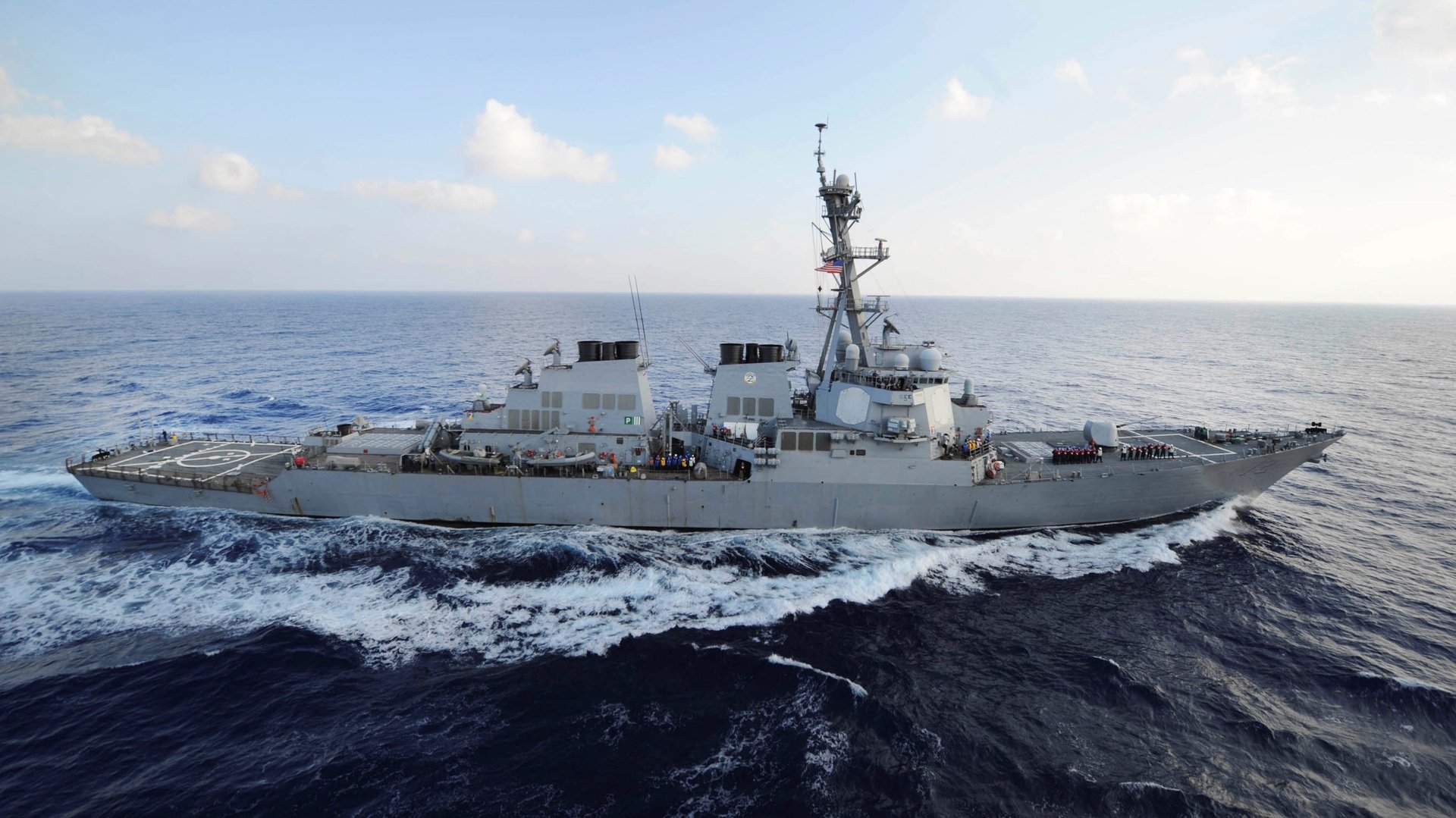Trump’s pick for Navy Secretary, Philip Bilden, is a financier and friend of China
US president Donald Trump’s nomination of financier Philip Bilden for US Navy Secretary was a bit of a surprise to those in the organization he may soon run. After all, Bilden’s military experience is limited to serving in the US Army Reserve, and he’s spent “most of his career” working in Hong Kong high finance, according to the Military Times.


US president Donald Trump’s nomination of financier Philip Bilden for US Navy Secretary was a bit of a surprise to those in the organization he may soon run. After all, Bilden’s military experience is limited to serving in the US Army Reserve, and he’s spent “most of his career” working in Hong Kong high finance, according to the Military Times.
Bilden worked in venture capital in Asia from 1996, remaining there until about 2014. He was not everyone’s top choice for this job. Former Virginia representative Randy Forbes, an early Trump backer who served in Congress for 16 years—and was chairman of the House Armed Services subcommittee on seapower—was thought to be the likely nominee.
On Jan. 13, Breaking Defense reported that Forbes had fallen out of favor, and and Trump was instead picking a “hedge fund guy from Hong Kong.” The publication wrote that a source with deep knowledge of the Navy and GOP politics called the choice “fucking ludicrous.” Another similarly credentialed source called it “crazy.”
The pick apparently prompted bickering in the new administration. Critics, speaking to the Washington Free Beacon anonymously, said Bilden was an unlikely choice to head a military department due to his limited experience, and his close ties to China, which they claim could compromise his ability to act as a US military leader.
Bilden joined HarbourVest Partners, an American private equity firm, in 1991. Five years later, he moved to Hong Kong, where he was in charge of large investments, making deals with Chinese state-run corporations and banks that can only conduct business with foreign enterprises if they are “friends of China” who do not challenge Beijing’s policies. Those who question the wisdom of making Bilden chief of the navy say this background isn’t ideal for a military commander.
But the view isn’t shared by Trump, or former NATO supreme commander retired Admiral James Stavridis, who told US Naval Institute News, ”[Bilden] is a man of extraordinary expertise on maritime and nautical affairs. He is an expert on Asia and understands, in particular, China very deeply. He’s a highly distinguished businessman who understands efficiency.”
In a statement about the nomination, Trump touted Bilden as “a highly successful business leader, former Military Intelligence officer”—he served as a military intelligence officer in the Army Reserves from 1986 to 1996, achieving the rank of Captain—”and Naval War College cybersecurity leader, who will bring strategic leadership, investment discipline, and Asia Pacific regional and cyber expertise to the Department of the Navy.” The new commander-in-chief promised that ”Bilden will apply his terrific judgement and top-notch management skills to the task of rebuilding our unparalleled Navy.”
Now, Bilden lives in Newport, Rhode Island, serving on the US Naval Academy Foundation board and development committee. He is a trustee of the Naval War College Foundation.
Trump noted that “Our number of ships is at the lowest point that it has been in decades. Philip Bilden is the right choice to help us expand and modernize our fleet, including surface ships, submarines and aircraft and ensure America’s naval supremacy for decades to come.”